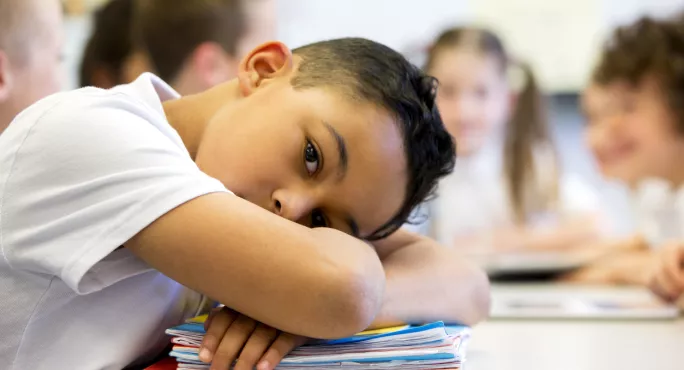Why talk of catch-up tells pupils that they’re damaged

My youngest, aged 10, went back to school on Monday, excited and looking forward to seeing her friends and teachers again, but also apprehensive about going back to something she hadn’t experienced for almost three months.
Seven hours later, she burst through the door, buzzing that she had had “the best day”.
Her worries and concerns, and her excitement, would have been shared by children and young people up and down the country, and by many parents, too.
These anxieties are entirely understandable. Students will be nervous about whether they have fallen further behind in their studies than their classmates, and worried whether their friendships have stood the test of lockdown. Younger ones have concerns about people and crowds and Covid; older ones will be worried about their uniform not fitting well.
Schools reopening: Don’t feed the fears
It’s important that we acknowledge these very real and genuine concerns. For some young people, learning from home has been successful, and they have continued to thrive. However, for others - those with a disrupted home environment, and without easy access to good technology - life these past few months will have been very challenging.
We know from the data that there are greater concerns coming through now from social services about situations in our students’ home lives. We also know that, while individual circumstances will be different, all children have lost learning. All have missed their friends. All have missed extracurricular activities, sport and play.
Every teacher and school leader I know is aware of all these challenges - and more - faced by our young people.
However, it is crucial that we don’t feed these fears. We must not underestimate the resilience of children and young people, nor the experience and expertise of schools.
When it comes to their studies, students will have learned more than they realise. They will re-engage more quickly than they imagine and, when they see their friends, they will slip back into school life without even realising it.
We cannot underestimate the ability of our students to bounce back - many of them will show greater resilience than some of us adults can muster.
Where they have fallen behind in their studies, schools will rapidly identify these areas and work with students on them. While we know that younger children have found it harder to engage with virtual learning, and few parents have the technical knowledge to be able to teach phonics or handwriting, I am confident in the skill of our teachers and support staff to work with our children to lay down the foundations for learning in the coming months.
Schools have been reintegrating children for years
Schools, it is easy to forget, have been reintegrating and welcoming children back to school after disruption and a break for years - every September after the long summer holiday, or every January after the exciting Christmas break. And this week we have put in place plans, informed by those implemented last September, when most students came back to school having been away for nearly six months.
We are well-equipped and well-practised in getting children back into school, settled and thriving again. And we’ve had time to plan for this return.
For more complex issues, teachers and leaders can be counted on to be supportive and to have strategies in place. Many have thought deeply about the mental health challenges some children and young people are exhibiting, and sourced suitable support, externally where necessary. In particular, we need to support students in Years 11 and 13, to help them manage anxiety around how their grades will be assessed this year.
Above all, our priority is to get children back to school, settled and happy, so that they can be successful again. And they will be.
Telling them how hard everything has been risks becomes a self-fulfilling prophecy. Saying they have to “catch up” and “recover” sends a signal that they are behind and need to rush - or that they are damaged. They aren’t: they are the same amazing bundles of potential that they always have been. Schools are highly skilled in supporting them to make the most of that potential.
The very best thing for children is, in fact, to get back to the routine of school, to socialising and to learning. They love finding out about the Vikings, lighting Bunsen burners or solving quadratic equations; they love playing and chatting with their mates.
There are children whose experiences of lockdown mean that they do need tailored and specific support, and that is being provided. But, even there, education is the biggest protective factor against mental ill-health.
The very best remedy for the anxieties - so that all our students are bursting through their front door at the end of each school day - is to have spent the previous few hours in a classroom, with their peers and their teachers.
Stuart Gardner is chief executive of The Thinking Schools Academy Trust
You need a Tes subscription to read this article
Subscribe now to read this article and get other subscriber-only content:
- Unlimited access to all Tes magazine content
- Exclusive subscriber-only stories
- Award-winning email newsletters
Already a subscriber? Log in
You need a subscription to read this article
Subscribe now to read this article and get other subscriber-only content, including:
- Unlimited access to all Tes magazine content
- Exclusive subscriber-only stories
- Award-winning email newsletters



